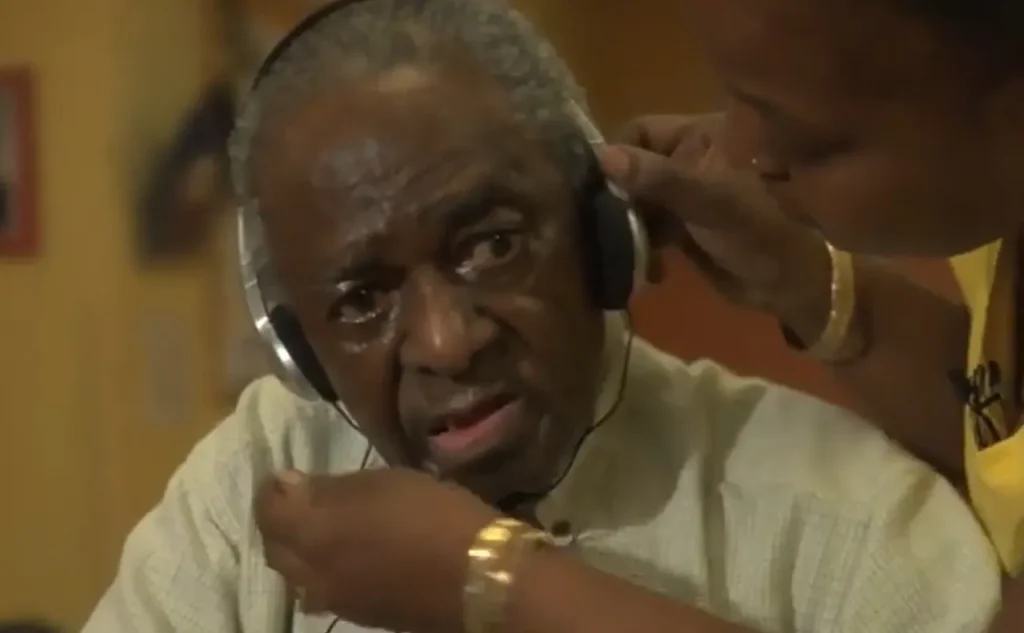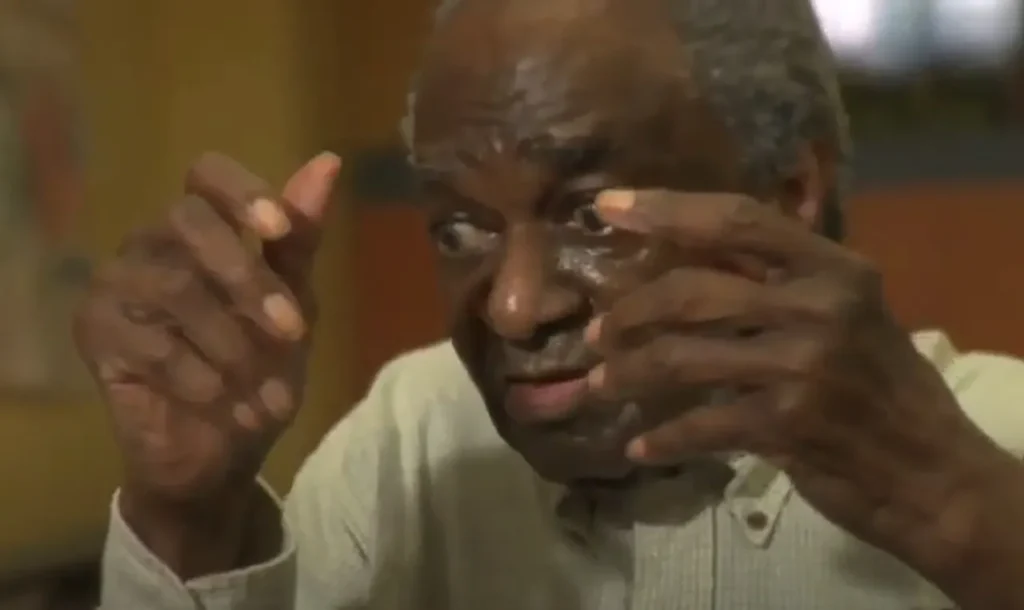Music is more than just entertainment—it’s a bridge to our past, a healer, and a companion in difficult times. This truth is beautifully illustrated in the story of 92-year-old Henry Dryer, who has been battling dementia for the last decade while living in a nursing home. Henry’s transformation, when he hears music from his youth, highlights the therapeutic power of music and its potential to rejuvenate lost memories and emotions.

For ten years, Henry had been living in a nursing home, where his family watched as dementia slowly took away the vibrant man they once knew. Over time, Henry became less responsive, more withdrawn, and lost his connection with the world around him. But then something extraordinary happened—one nurse decided to try something different. She placed headphones over Henry’s ears, playing music from his era. What followed was nothing short of a miracle.
Henry, who had been largely unresponsive for years, suddenly came to life. His eyes lit up, his body began to move to the rhythm, and he even started singing along with songs he hadn’t heard in decades. It was a transformation that left onlookers in awe. His reaction showed that while his memory seemed inaccessible, music had the power to reach deep into his subconscious, unlocking emotions and memories that were still very much alive. Watch his unbelievable transformation in the heartwarming video below.

This remarkable event is a clear demonstration of music therapy’s potential benefits for patients with dementia or Alzheimer’s disease. Research shows that music can activate parts of the brain related to memory, emotion, and even motor skills. It can trigger memories, reduce anxiety, and improve overall mood. In Henry’s case, the music he heard tapped into a part of his identity that had not been lost—his musical memory. Music is stored in regions of the brain that are often left intact by dementia, which is why patients like Henry can respond so positively to familiar tunes.
Healthcare professionals have long recognized the value of music in therapy. Music therapy is increasingly used in nursing homes, hospitals, and even at home to help dementia patients reconnect with their surroundings, communicate, and experience moments of joy.
Henry’s story is not an isolated case. Many other individuals with dementia have shown similar responses when exposed to music from their pasts. This suggests that music therapy could be a valuable addition to dementia care strategies, offering a non-invasive, low-cost, and effective way to improve quality of life for patients.